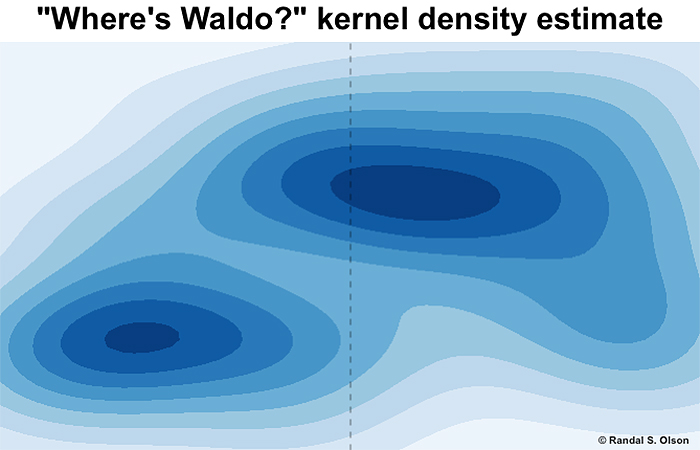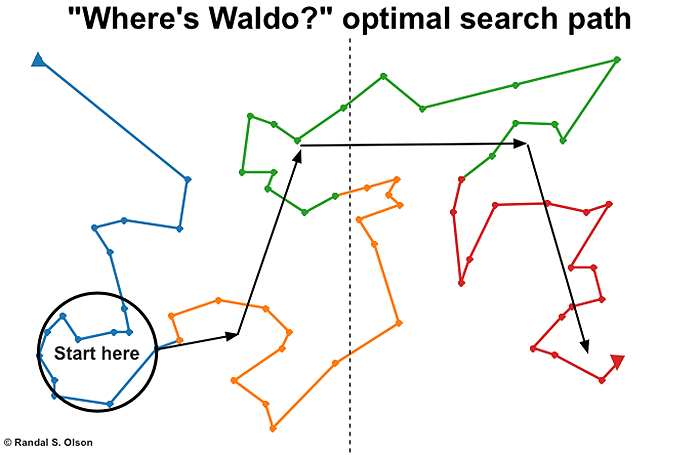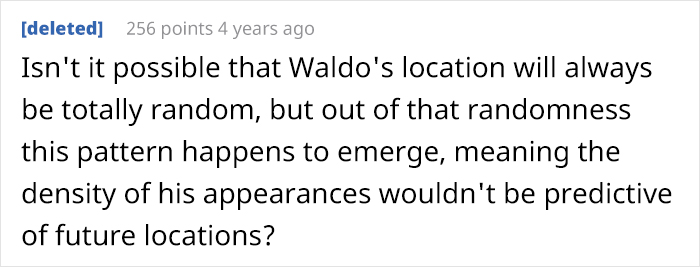If You’ve Ever Struggled With Finding ‘Waldo’, This Algorithm Might Help
Created by English illustrator Martin Handford, the Where’s Waldo? series of puzzle books are a source of joy and frustration for many. A lot of us have spent a great amount of time trying to locate the red-and-white-striped hat and sweater elbows deep in the pages of the book.
While looking for Waldo, the reader can always appreciate the impressive amount of detail put into each page. As he told The New York Times back in 1990, one scene takes Martin Handford around eight weeks to finish. “I work in stages across the page, from left to right,” he said. “I start out with a list of about 20 gags I want to put in a picture, but more come to me as I am working.” But apparently, when it comes to placing Waldo, there’s no rocket science there. “As I work my way through a picture, I add Wally when I come to what I feel is a good place to hide him,” the author once told the media.
Nonetheless, it sometimes seems like tedious work to find Waldo amidst the impressive details and countless characters. But apparently, thanks to a method invented by Dr. Randal Olson, a data scientist based in Portland, Oregon area, you can easily optimize your search.
More info: Dr. Randal S. Olson’s blog
A scientist who specializes in artificial intelligence, machine learning, and data visualization came up with a way to find Waldo

Image credits: Dr. Randal S. Olson
Having realized that a previously suggested popular strategy had its flaws, Randal was determined to use “every machine learning trick in my tool box to compute the optimal search strategy for finding Waldo.” By using the data of 68 characters’ locations in each page from seven Waldo books, the computer scientist began breaking down the problem relying on the traveling salesman problem.
However, he found out that the method provides one hell of a lot of findings: “Those 68 points can be arranged in ~2.48 x 1096 possible ways. To provide some context, that’s more possible arrangements than the number of atoms in the universe. That’s so many possible arrangements that even if finding Waldo became an international priority and the world banded together to dedicate the 8.25 million computing cores from the world’s 10 largest supercomputers to the job, it would still take ~9.53 x 1077years—about 6.35 x 1067x longer than the universe has existed—to exhaustively evaluate all possible combinations.”
First, he located 68 of Waldo’s coordinates in the 7 primary editions of the “Where’s Waldo?” books

Image credits: Dr. Randal S. Olson
And performed a kernel density estimation of the points

Image credits: Dr. Randal S. Olson
Then, he retreated to using a so-called genetic algorithm and found an almost flawless way to improve your speed of finding Waldo. In his viral blog post, Randal gave three lessons to those who want to try it in the future:
1. The bottom of the left page is a good place to start. If Waldo isn’t on the bottom half of the left page, then he’s probably not on the left page at all.
2. The upper quarter of the right page is the next best place to look. Waldo seems to prefer to hide in the upper quarter of the right page.
3. Next, check the bottom right half of the right page. Waldo also has an aversion to the bottom left half of the right page. Don’t bother looking there until you’ve exhausted the other hot spots.
And computed the strategy by approaching the problem as a traveling salesman problem
Image credits: Dr. Randal S. Olson
“After running the genetic algorithm for about 5 minutes, I ended up with the solution below”

Image credits: Dr. Randal S. Olson
However, Randal writes in his blog that this method is done in ‘good humor’. “Barring a situation where someone puts a gun to your head and forces you to find Waldo faster than their colleague — I don’t recommend actually using this strategy for casual “Where’s Waldo?” reading. As with so many things in life, the joy of finding Waldo is in the journey, not the destination,” Dr. Olsen notes. To read more about how and why Randal S. Olsen came up with an ingenious method, head over to his blog by following this link.
Here’s what people said







No comments